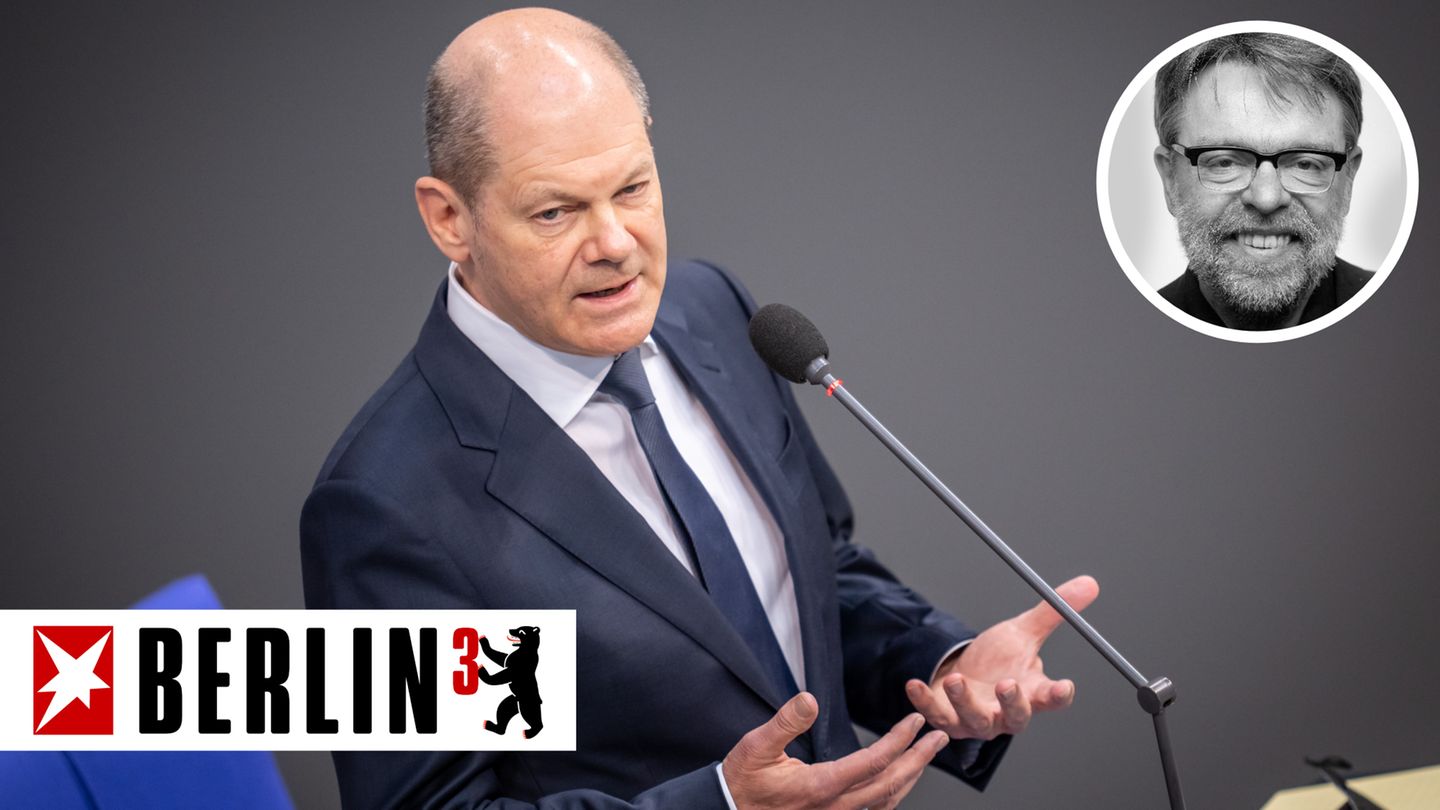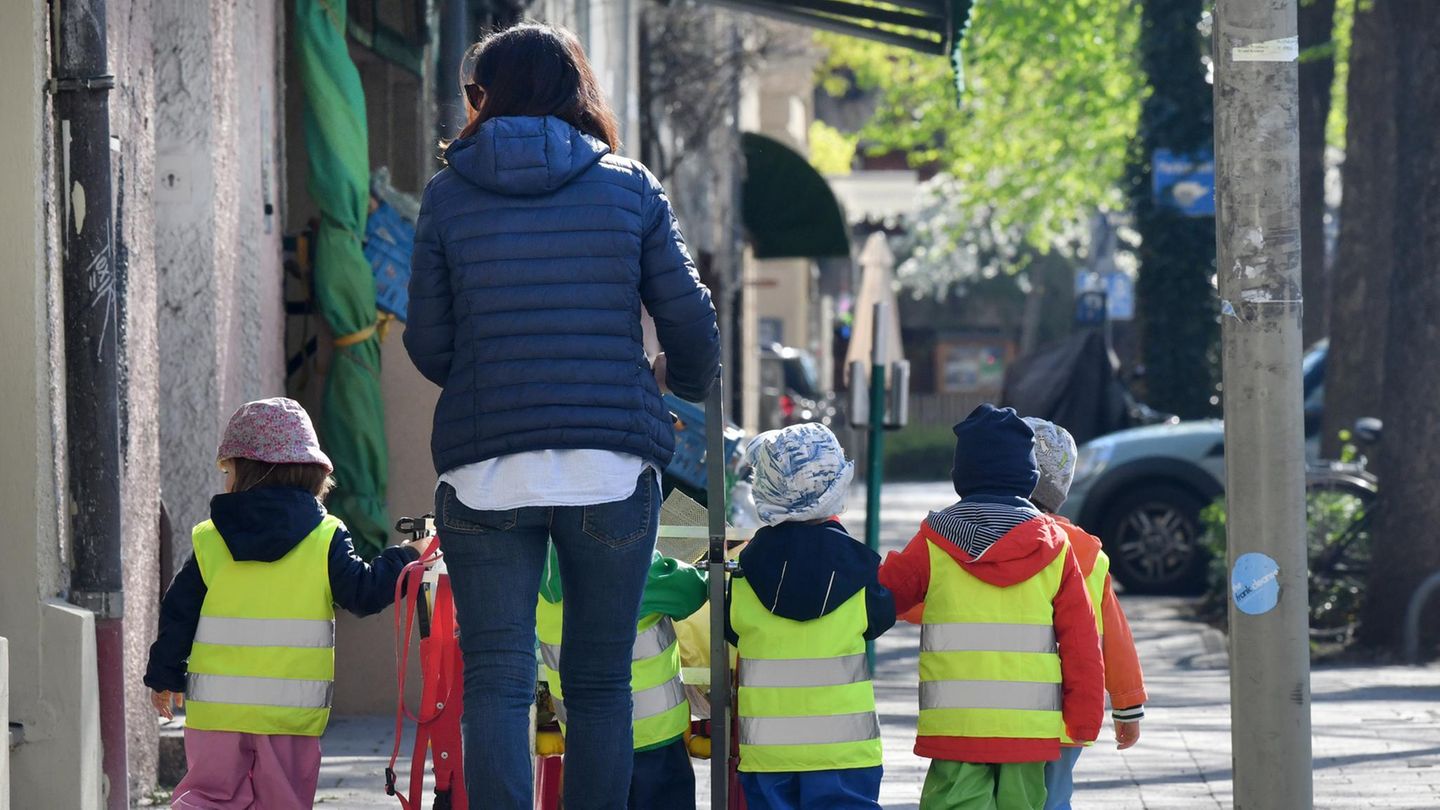The Bundestag debates the atrocities committed by the Russian army in Bucha and Olaf Scholz allows himself to be questioned. However, the deputies did not learn much that was new. You’re asking the wrong questions. And the chancellor has no intention of actually answering them anyway. About too much routine on a really special day.
How long has it been since the chancellor announced his turning point from this place, with exceptionally clear, pithy words? When was that again, when Olaf Scholz castigated Russia’s attack on Ukraine as “inhuman”, “violating international law”, “unjustifiable by nothing and nobody”? How long has it been since he lamented “the terrible pictures”, “Putin’s complete lack of scruples”, “the outrageous injustice” and the “pain of the Ukrainians”?
A month? A year? An eternity?
And what has actually happened in these 38 days since this government statement, which was believed to have historical status? Well, the horrific images have become even more horrifying, the injustice is screaming even louder. And otherwise?
And otherwise OIaf Scholz is on this Wednesday, on which the Bundestag will also debate the atrocities of Butscha and then remember the horror of Srebrenica and the beginning of the Bosnian war 30 years ago, so on this Wednesday Scholz is back in the Bundestag, only this time not at the lectern, but in front of his chancellor’s chair at the government bench, next to him the Secretary of State for Economic Affairs Michael Kellner, who is standing in for his similarly disheveled boss Robert Habeck.
The Vice-Chancellor will soon present his so-called Easter package, the package of measures with which the energy transition is to be promoted in order to get out of dependence on Russian oil, gas and coal supplies as quickly as possible and, of course, also to stop climate change. There is quite a lot to do on this day.
Clear words. Unfortunately, they do not come from the Chancellor
The chancellor answers questions from members of parliament three times a year. Before the summer break. Before Christmas. And, like now, before Easter. Every Wednesday, one hour each. It’s a routine occurrence. Only at this time there is no routine anymore. Shouldn’t they exist. Should they not be allowed to exist.
The regulations also include giving the chancellor five minutes to briefly explain himself or, in the words of Bundestag President Bärbel Bas, to make “introductory statements”. Scholz almost doubles the time. And again it’s about “terrible pictures”, “massacres” and “war crimes”. About the fear of having to see “more such pictures” soon.
Scholz called the attack on Ukraine in the first days of the war “Putin’s war”. He did not want to hold the Russian people collectively responsible for the actions of their president. This subtle separation can no longer be maintained. Not after seven weeks in which Russian troops burn cities to rubble and starve the population, in which soldiers brutally murder civilians.
It is “a dehumanization that has transcended all boundaries”. And Putin may be the client, “but it’s not just his deeds. Every commander who orders something like this, every soldier who carries out such an act or allows it to happen is at least as guilty.” The “cruelty of the Putin system” knows no limits, no inhibitions. “Whoever acts like Putin doesn’t care whether the bodies are lying on the streets of Bucha or on the streets of Tbilisi, Vilnius or Berlin.”
Clear words. Unfortunately, they do not come from the Chancellor. She will say, almost two hours after Scholz, his Defense Minister Christine Lambrecht in the short-term debate on the massacre of Russian troops in Butscha. The social democrat has not cut a particularly happy figure in the few months in office. On this Wednesday, however, one wished that the chancellor would have something of her.
Olaf Scholz remains Olaf Scholz
One hears – and learns – nothing new from Scholz in this Question Time. Which, in all fairness, is not solely due to him and his innate or trained rhetorical tight-lippedness. But the ingrained rituals that the parliamentarians adhere to even in these times of change. The deputies of the traffic light party ask favors questions. Those in the opposition lose themselves in oppositional curmudgeon shit. So much routine obviously has to be, even on a day like this.
And Scholz? It is obviously a pleasure not to answer these questions as far as possible. After all, he makes it tighter than his predecessor. And then actually throws in something like news. The chancellor announced that his government is planning a “sanctions enforcement law” in order to be able to implement measures against Russia and Russian oligarchs more effectively. Sanctions Enforcement Act – you have to think about it first.
Otherwise, it is more interesting in this hour anyway, which questions not be asked that day. For example, why the Chancellor is in lively, well, exchanges of views with the Russian President, but obviously does not consider going to Kyiv to meet Volodymyr Zelenskyy like the European Commission President. Or whether Germany will participate in the coal embargo and what the consequences will be. And whether the government has since approved the delivery of Czech tanks from the inheritance of the National People’s Army to Ukraine.
Quite exciting questions. Even if there is little hope that the chancellor would actually give satisfactory answers. Times may turn. This Olaf Scholz no longer.
Source: Stern
David William is a talented author who has made a name for himself in the world of writing. He is a professional author who writes on a wide range of topics, from general interest to opinion news. David is currently working as a writer at 24 hours worlds where he brings his unique perspective and in-depth research to his articles, making them both informative and engaging.




